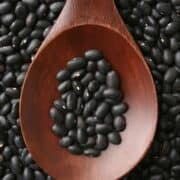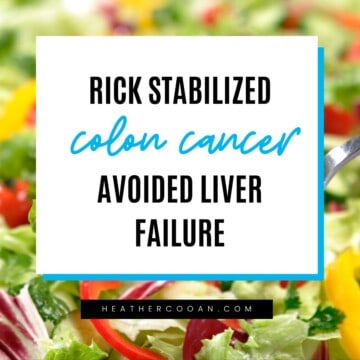
PCOS, an ovarian disease affecting many women in the United States, manifests as a hormonal problem, but it's actually rooted in metabolic dysfunction. In addition to the direct symptoms of PCOS, there are also a number of related conditions or symptoms caused by hormonal imbalances or insulin regulation in people with PCOS. We’ve gone into some of these co-occurring disorders here.
What is PCOS?
To understand how other conditions are related to PCOS, we first need to understand what it is.
PCOS stands for polycystic ovarian syndrome. In laywoman's terms, it means you have many (poly) non-cancerous cysts on your ovaries. That said, it's a bit of a misnomer; PCOS is actually a metabolic condition, and the cysts are just one symptom of this disorder.
PCOS is related to an imbalance (excess) of male sex hormones (androgens), including testosterone. This can cause problems such as excess body hair (hirsutism), particularly on the chin, above the lips, and on your neck (as though your body is trying to grow a beard). It can also cause hormonal acne, particularly on the chin. (1)
Other problems directly tied to PCOS include trouble with ovulation and fertility (chronic anovulation). There are also some indirect problems, such as obesity and trouble regulating insulin. (2)
Currently, there is no approved cure for PCOS. However, a study published last year suggests that it might have something to do with an excess of one hormone (anti-Müllerian hormone, or AMH) in the womb. The research is promising, but more studies are needed before we start adopting hormonal treatments for women with PCOS or for pregnant women with excess AMH. (3)
Insulin Resistance
Since PCOS is a metabolic condition, it comes with trouble managing weight--largely due to yet another hormone, insulin.
Insulin controls how your body metabolizes sugar. When you eat, your blood sugar (blood glucose) rises. If you’ve ever heard of the Glycemic Index or GI diet, this is based on how quickly or slowly blood glucose levels rise when you eat certain foods. White carbs and starchy or sugary fruits are particularly high on the Glycemic Index. (4)
After your blood glucose level rises, the pancreas (another hormone regulator) is supposed to release insulin into the blood to process your blood sugar levels and bring them back down to normal. However, if you have an insulin resistance--a key feature in PCOS--your body can’t properly process those blood sugar levels, so the pancreas keeps producing insulin. (5)
Insulin resistance is also a key indicator of diabetes and heart disease; as many as 80% of women with PCOS are overweight or obese. (6)
Thyroid Dysregulation
Since PCOS is tied to hormonal problems, it should come as no surprise that thyroid problems are common, since the thyroid is one of the main hormone regulators in the body. In one study, 27.5% of the 80 PCOS patients studied had a goiter, commonly associated with an under- or over-active thyroid (hypothyroidism or hyperthyroidism, respectively). (7)
In addition to goiter, hypothyroidism comes with symptoms such as fatigue, trouble with bowel movements (constipation) or menstruation, muscle or joint pain, depression, thinning hair, and weight gain, among others. (8)
On the other hand, symptoms of hyperthyroidism include fatigue, frequent bowel movements, trouble with menstruation, muscle weakness, anxiety, heart arrhythmia, and weight loss despite an increased appetite. (9)
The most common cause of hypothyroidism in the US is Hashimoto’s Disease, a type of autoimmune disorder in which your immune system attacks your thyroid. Conditions such as lupus, celiac disease, rheumatoid arthritis, and type 1 diabetes are linked to Hashimoto’s. In addition to the usual symptoms of hypothyroidism, high cholesterol and heart disease are also commonly linked to Hashimoto’s. (10)
If you have been diagnosed with PCOS, you have probably already had your blood tested to check thyroid regulation; if not, be sure to talk to your doctor about this.
The Mind-Body Connection
You may have seen studies in the past few years about the “mind-body connection”--the idea that our physical health is inexorably linked to our mental health. High stress in your life, including depression and anxiety, are linked to all sorts of disorders--metabolic syndrome, cardiovascular disease, asthma, inflammatory diseases, and even cancer. Stress can also cause complications in the nervous and neuroendocrine systems. (11)
Since PCOS has implications for your weight management, it shouldn’t surprise you that one study found as many as 40% of women with PCOS have depression, 11.6% suffer from anxiety disorders, and 23.3% experience binge eating disorder. (12)
The mind-body connection goes both ways. To help regulate your digestion, you may need to focus on your stress levels and mood. And to help regulate your stress levels and mood, you might need to change your diet (think more fruits, veggies, and fermented foods for a happy microbiome).
How To Manage PCOS
Since PCOS has to do with our hormones, it can affect nearly all processes in our body--our weight, our mood, our appearance, our bowels, and our fertility. What can we do about all of this?
Test Your Hormones
You can’t do anything about a problem if you don’t know it’s there! Make sure you are getting your blood checked regularly for thyroid hormones and high blood sugar. Your doctor may be able to recommend medication to help you feel better while you work on deeper health issues.
Manage Your Mind
If you have stress in your life and are finding it difficult to cope, try and reassess your life to see what you can change--your relationship, your career, your coping mechanisms, your support system, or perhaps your mindset.
For many people, changes in diet and exercise or the addition of relaxation techniques (like mindfulness and meditation) can help you better regulate stress. However, if your problems with anxiety or depression are starting to interfere with your job or your happiness, speak to a professional.
Manage Your Diet
In my recent article on what to eat with PCOS, I highlighted a small study where five women with PCOS underwent a keto diet. After 24 weeks, they had lost a collective 12% body weight and had other decreases in insulin, glucose, body hair, and testosterone. Two women that had been struggling with fertility became pregnant. (13)
Because women with PCOS have a difficult time regulating insulin, a diet low in carbohydrates might be able to significantly reduce symptoms. Plus, weight loss might help you maintain your mood and fend off diabetes.
With the right coping mechanisms, support systems, medications, and wellness routine, you can help manage your symptoms and feel better overall. It’s the closest we can get to beating PCOS for good!
References:
- Yildiz, B. O., MD. (2006, June 12). Diagnosis of hyperandrogenism: Clinical criteria. Retrieved May 3, 2019, from https://www.sciencedirect.com/science/article/abs/pii/S1521690X06000212?via=ihub
- Laganà AS, Rossetti P, Buscema M, La Vignera S, Condorelli RA, Gullo G, … Triolo O. Metabolism and Ovarian Function in PCOS Women: A Therapeutic Approach with Inositols. International journal of endocrinology [Internet]. 2016. Available from: https://www.ncbi.nlm.nih.gov/pmc/articles/PMC4989075/
- Tata, B., Mimouni, N. E. H., Barbotin, A. L., Malone, S. A., Loyens, A., Pigny, P., ... & Dal Bello, F. Elevated prenatal anti-Müllerian hormone reprograms the fetus and induces polycystic ovary syndrome in adulthood. Nature medicine [Internet]. 2018. Available from: https://www.nature.com/articles/s41591-018-0035-5
- Glycemic Index and Diabetes. American Diabetes Association [Internet]. May 2014. Available from: http://www.diabetes.org/food-and-fitness/food/what-can-i-eat/understanding-carbohydrates/glycemic-index-and-diabetes.html
- Insulin Resistance & Prediabetes. National Institute of Diabetes and Digestive and Kidney Diseases [Internet]. May 2018. Available from: https://www.niddk.nih.gov/health-information/diabetes/overview/what-is-diabetes/prediabetes-insulin-resistance
- Sam S. Obesity and Polycystic Ovary Syndrome. Obesity management [Internet]. 2007. Available from: https://www.ncbi.nlm.nih.gov/pmc/articles/PMC2861983/
- Sinha, U., Sinharay, K., Saha, S., Longkumer, T. A., Baul, S. N., & Pal, S. K. Thyroid disorders in polycystic ovarian syndrome subjects: A tertiary hospital based cross-sectional study from Eastern India. Indian journal of endocrinology and metabolism [Internet]. 2013. Available from: https://www.ncbi.nlm.nih.gov/pmc/articles/PMC3683210/
- Hypothyroidism (underactive thyroid). Mayo Clinic [Internet]. 2018. Available from: https://www.mayoclinic.org/diseases-conditions/hypothyroidism/symptoms-causes/syc-20350284
- Hypothyroidism (underactive thyroid). Mayo Clinic [Internet]. 2018. Available from: https://www.mayoclinic.org/diseases-conditions/hypothyroidism/symptoms-causes/syc-20350284
- Hashimoto's Disease. National Institute of Diabetes and Digestive and Kidney Diseases [Internet]. 2018. Available from: https://www.niddk.nih.gov/health-information/endocrine-diseases/hashimotos-disease
- Brower V. Mind-body research moves towards the mainstream. EMBO reports [Internet]. 2006. Available from: https://www.ncbi.nlm.nih.gov/pmc/articles/PMC1456909/
- Risk of depression and other mental health disorders in women with polycystic ovary syndrome: A longitudinal study. Science Direct [Internet]. 2008, February 04. Available from: https://www.sciencedirect.com/science/article/pii/S0015028207040873
- Mavropoulos JC, Yancy WS, Hepburn J, Westman EC. The effects of a low-carbohydrate, ketogenic diet on the polycystic ovary syndrome: a pilot study. Nutr Metab (Lond) [Internet]. 2005. Available from: https://www.ncbi.nlm.nih.gov/pmc/articles/PMC1334192/#__ffn_sectitle



















Comments
No Comments